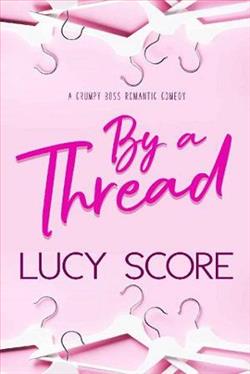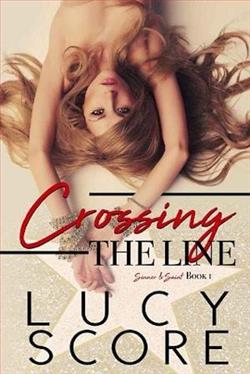Page 11 of Fourth Protocol
That was May 28, 1981, and the papers carried a few sparse details the following day. Preston had been in an unmarked car and had entered the Bogside district in Londonderry on his way to a meet with an informer. Whether there had been a leak higher up, whether the car he was driving had been used once too often, or whether his face had been “made” by the Provo intelligence people was never later established. Whatever, there was a foul-up. Just as he entered the Republican stronghold, a car containing four armed Provos had pulled out from a side street and followed him.
He had spotted them quickly in his rearview mirror and called off the rendezvous at once. But the Provos wanted more than that. Deep inside the ghetto they swerved across his front and came tumbling out of their own car, two with Armalites and one with a pistol.
With nowhere to go but heaven or hell, Preston had taken the initiative. Against the odds and to the consternation of his attackers, he came out of his own door in a fast roll, just as the Armalites riddled his vehicle. He had his Browning thirteen-shot nine-millimeter in his hand, set to Automatic. From the cobblestones he let them have it. They had expected him to die decently, and they were too close together.
On rapid fire, he had dropped two dead in their tracks and blown a chunk out of the neck of the third. The Provo driver let in his clutch and disappeared in a plume of burning tires. Preston made his way to a safe house staffed by four SAS troopers, who kept him until Capstick arrived to bring him home.
Of course, there had been the devil to pay—inquiries, interrogations, worried questions from on high. There was no question of Preston’s going on. He had been well and truly burned, to use the term-of-art—that is, identified. His usefulness was over. The surviving Provo would know his face again anywhere. They would not even let him go back to his old regiment, the Paras, at Aldershot. Who knew how many Provos hung around Aldershot?
They had offered him Hong Kong or the exit door. Then Bertie Capstick had had a talk with a friend. There was a third choice. Leave the Army as a forty-one-year-old major and become a late entrant into MI5. He had gone for that one.
“Anything particular?” Capstick was asking.
Preston shook his head. “Just a round of getting-to-know-you visits,” he said.
“Don’t worry, Johnny. Now I know you’re on the seat, I’ll call if anything crops up here that looks bigger than swiping the Christmas fund. How’s Julia, by the way?”
“I’m afraid she’s left me. Three years ago.”
“Oh, I’m sorry to hear that.” Bertie Capstick’s face puckered in genuine concern. “Another fella?”
“No. Not then. There’s someone now, I think. Just the job ... you know.”
Capstick nodded grimly. “My Betty’s always been very good like that,” he ruminated. “Been away from home half my life. She always stuck by. Kept the fire burning. Still, no life for a woman. Seen it happen before. Many
times. Still, bad luck. See the boy?”
“Now, and again,” admitted Preston.
Capstick could not have struck a rawer nerve. In his small and lonely South Kensington flat, Preston kept two photographs. One showed him and Julia on their wedding day—he at twenty-six, trim in his Parachute Regiment uniform; she at twenty, beautiful in white. The other was of his son, Tommy, who meant more to him than life itself.
They had lived a normal Army Üfe in a succession of married quarters, and Tommy had been born eight years after their wedding. His arrival had fulfilled John Preston, but not his wife. Soon after, Julia had begun to get bored by the chores of motherhood, compounded by the loneliness of his absences, and had begun to complain; of the lack of money. She chivied him to leave the Army and earn more in civilian life, refusing to understand that he loved his job and that the boredom of a desk in commerce or industry would have driven him to distraction.
He transferred to the Intelligence Corps, but that made it worse. They sent him to Ulster, where wives could not follow. Then he went underground and all contact was broken. After the Bogside incident she really made her feelings plain. They gave it one more try, living in the suburbs while he worked at Five. He was able to return almost every evening to Sydenham, and that had solved the separation question, but the marriage had gone sour. Julia wanted more than his salary as a late entrant in Five could provide.
She had taken a job as a receptionist at a fashion house in the West End when Tommy, aged eight, had gone, at her insistence, to a local private school near their small home. That had strained the finances even more. A year later she had left completely, taking Tommy with her. Now, he knew, she was living with her boss, a man old enough to be her father but able to keep her in style and Tommy at a boarding preparatory school at Tonbridge. Now Preston hardly ever saw the twelve-year-old lad.
He had offered her a divorce, but she did not want one. After a three-year separation he could have got the divorce anyway, but she had threatened that, as he could not provide for the boy and pay maintenance, she would settle for Tommy. He was cornered and he knew it. She allowed him to have Tommy for one week in each holiday and for one Sunday each term.
“Well, I must be going, Bertie. You know where I am if anything big blows up.”
“Of course, of course.” Capstick lumbered to the door to see him out. “Take care of yourself, Johnny. There aren’t many of us good guys left anymore.”
They parted on a jocular note and Preston went back to Gordon Street.
Louis Zablonsky knew the men who arrived in a van and knocked on his front door late on Saturday night. He was alone in the house, as usual on Saturdays; Beryl was out and would not return until the small hours. He supposed they knew that.
He had been watching the late film on television when the knock came, and when he answered the door, they bulled straight into the hallway, closing the door behind them. There were three of them. Unlike the four who had visited Raoul Levy two days earlier (an incident of which Zablonsky knew nothing, since he did not read the Belgian papers), these were hired muscle from London’s East End—“slags,” in underworld parlance.
Two were brutes, simple steak-faced thugs who would do anything they were told and would obey the orders of the third; he was slight, pocked, mean, with dirty-blond hair. Zablonsky did not know them personally; he just “knew” them; he had seen them in the camps, in uniform. Recognition sapped his will to resist. He understood there was no point. Men like these always did what they wanted to people like him. There was no point in resisting or appealing.
They pushed him back into the sitting room and threw him into his own armchair. One of the big men stood behind the chair, leaned forward, and pinned Zablonsky into it. The other stood by, caressing one fist with the palm of the other hand. The blond man drew up a stool in front of the chair, squatted on it, and stared at the jeweler’s face. “ ’It ’im,” he said.
The slag to Zablonsky’s right swung a heavy fist straight into his mouth. The man was wearing brass knuckles. The jeweler’s mouth dissolved in a welter of teeth, lips, blood, and gum.
Blondie smiled. “Not there,” he chided gently. “ ’E’s supposed to talk, ain’t ’e? Lower down.”
The thug slammed two more haymakers into Zablonsky’s chest. Several ribs cracked. From Zablonsky’s mouth came a high-pitched keening. Blondie smiled. He liked it when they made noise.















